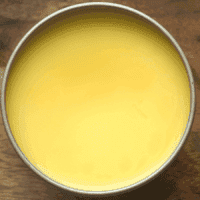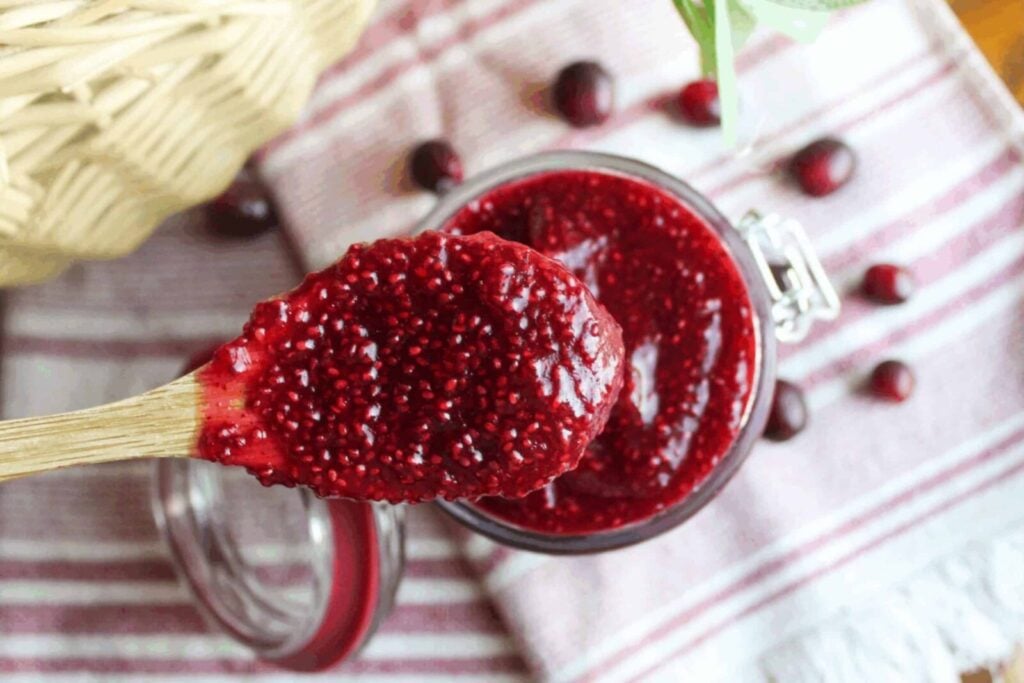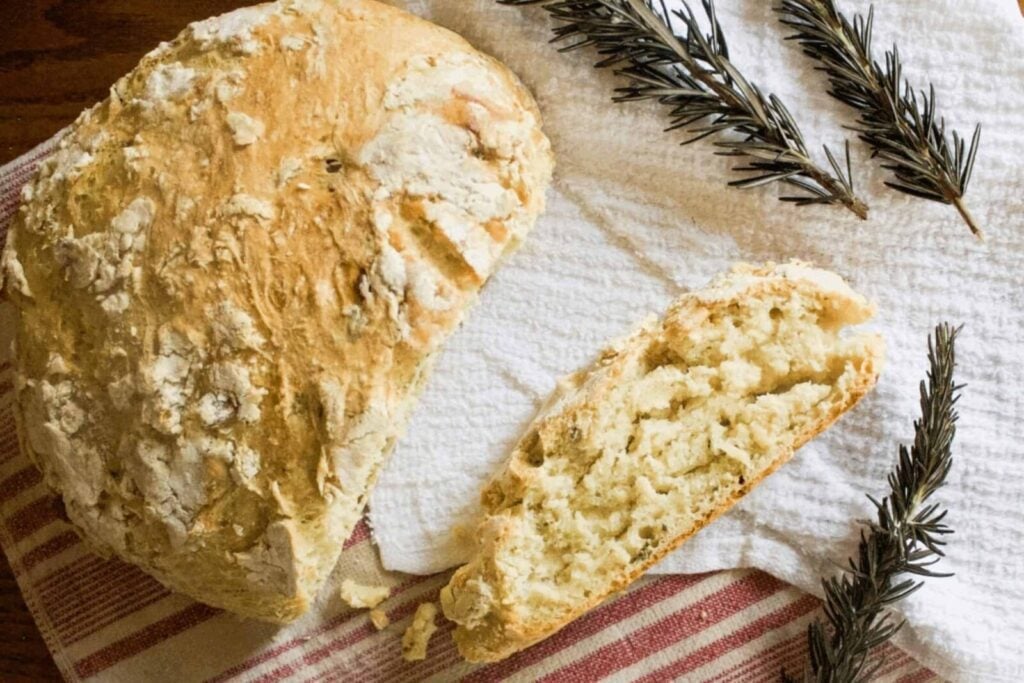Cast iron cookware has been a staple in kitchens for centuries, known for its durability and excellent heat retention. To keep your cast iron pans in top-notch condition, proper seasoning is essential. While commercial seasoning oils are available, many enthusiasts prefer crafting their own DIY cast iron seasoning oil for a more personalized touch. In this guide, we’ll delve into the world of DIY cast iron seasoning oil, exploring the benefits of using a combination of 1/4 cup beeswax, 1/4 cup flaxseed oil, and 1/4 cup coconut oil.
Disclosure: This post may contain affiliate links. That means I may earn a small commission if you purchase through them, at no additional cost to you.
The Power Trio: Beeswax, Flaxseed Oil, and Coconut Oil
- Beeswax: Nature’s Sealant – Beeswax is a natural substance produced by bees, renowned for its waterproofing and sealing properties. In the context of cast iron seasoning, beeswax acts as a protective barrier against moisture, preventing rust and extending the life of your cookware. Its high melting point ensures a durable finish that can withstand the rigors of cooking at high temperatures.
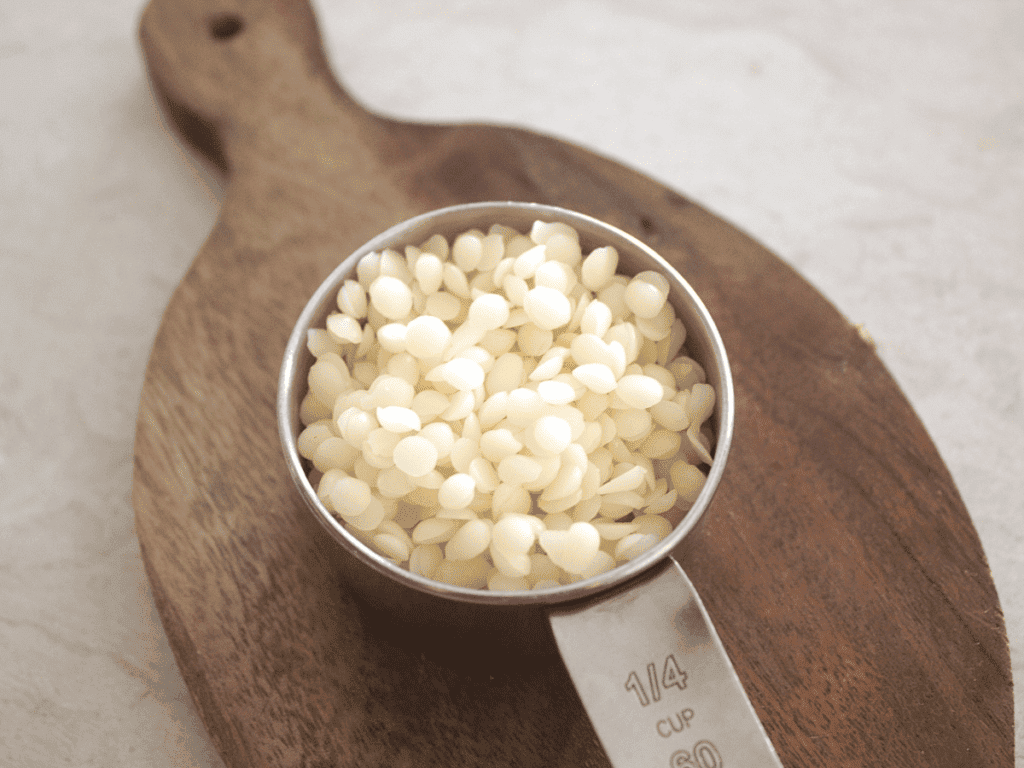
- Flaxseed Oil: Polymerization Magic – Flaxseed oil, derived from flaxseeds, is a popular choice for cast iron seasoning due to its ability to polymerize when exposed to heat. Polymerization creates a hard, protective layer on the surface of the cast iron, giving it a non-stick quality. The result is a slick and smooth cooking surface that improves with each use. Flaxseed oil is also rich in omega-3 fatty acids, providing additional health benefits.
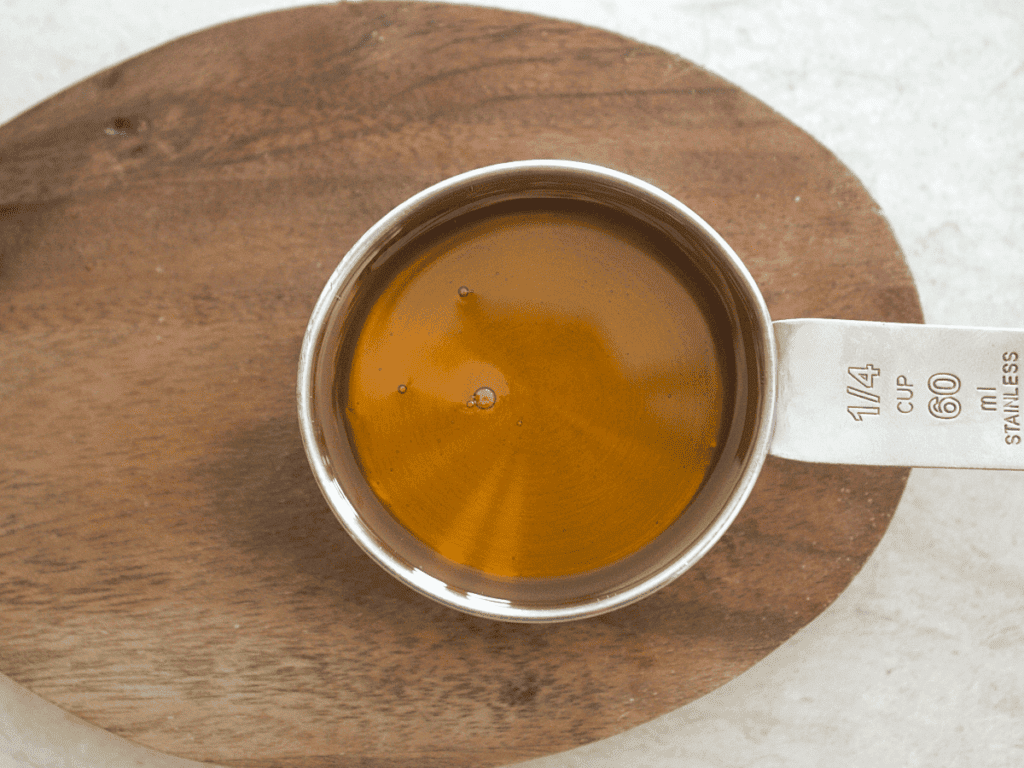
- Coconut Oil: Heat Tolerant – Coconut oil contributes to the stability of the oil mixture. Its high smoke point ensures that the seasoning process occurs without producing harmful fumes. The coconut oil enhances the overall seasoning, creating a well-rounded combination that protects your cast iron.
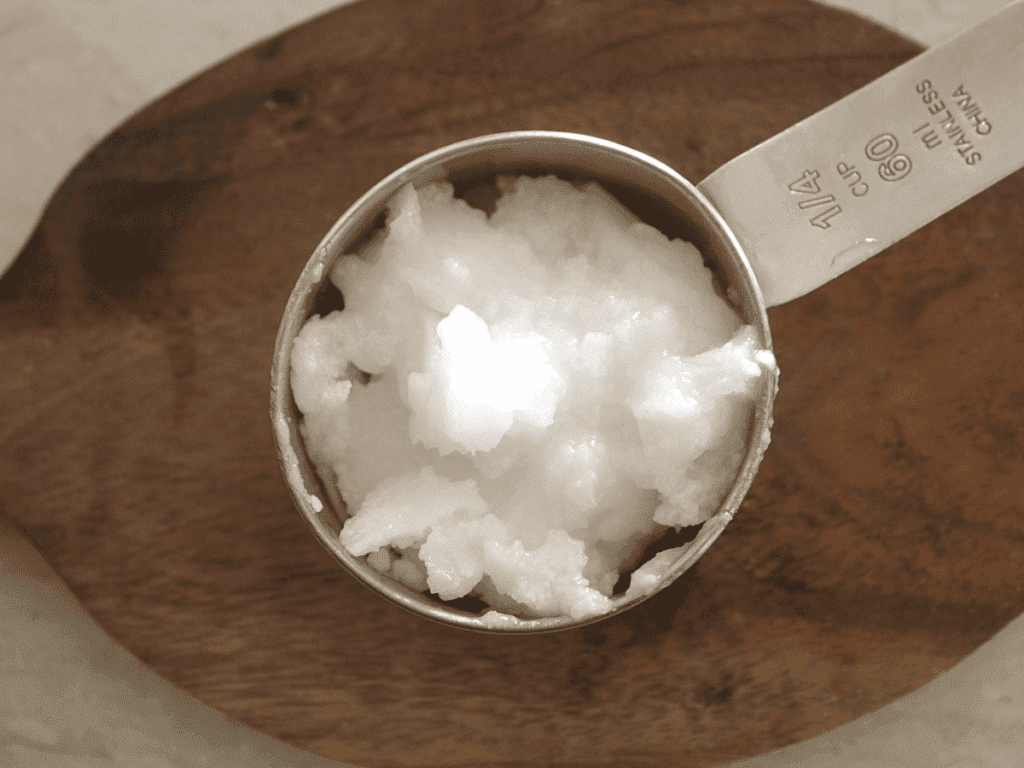
DIY Cast Iron Seasoning Oil Recipe:
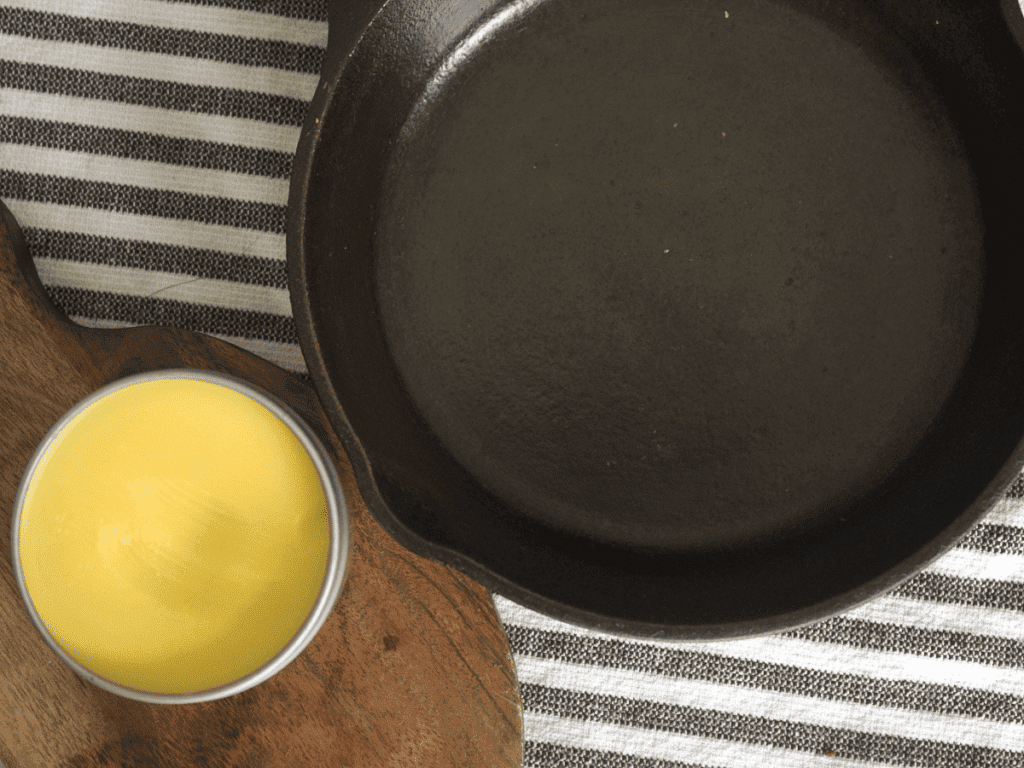
Now that we understand the benefits of each ingredient, let’s dive into the step-by-step process of creating your own DIY cast iron seasoning oil:
Ingredients:
- 1/4 cup Beeswax
- 1/4 cup Flaxseed Oil
- 1/4 cup Coconut Oil
Instructions:
- Preparation: Gather all the ingredients and ensure your cast iron cookware is clean and dry. A well-prepared surface allows the seasoning oil to adhere effectively.
- Melting the Beeswax: In a double boiler or a heat-resistant bowl placed over a pot of simmering water, melt the beeswax. Be patient, as beeswax has a higher melting point compared to other oils. Stir occasionally to ensure even melting.
- Combining the Oils: Once the beeswax is fully melted, add the flaxseed oil and coconut oil to the mix. Stir the ingredients together thoroughly, creating a homogeneous mixture. The combination of these oils brings a perfect balance of sealing, polymerizing, and flavor-enhancing properties.
- Cooling and Storage: Allow the mixture to cool but not solidify. Once it reaches a pourable consistency, carefully pour it into a container with a tight-sealing lid. Store the DIY cast iron seasoning oil in a cool, dark place when not in use.
- Application: When ready to season your cast iron, apply a thin, even layer of the oil mixture to the entire surface of the cookware. Ensure that the oil reaches all nooks and crannies. Bake the cast iron in an oven at a moderate temperature (around 375°F or 190°C) for an hour. This process allows the seasoning oil to bond with the cast iron, creating a durable and non-stick finish.
Benefits of Seasoning Your Cast Iron
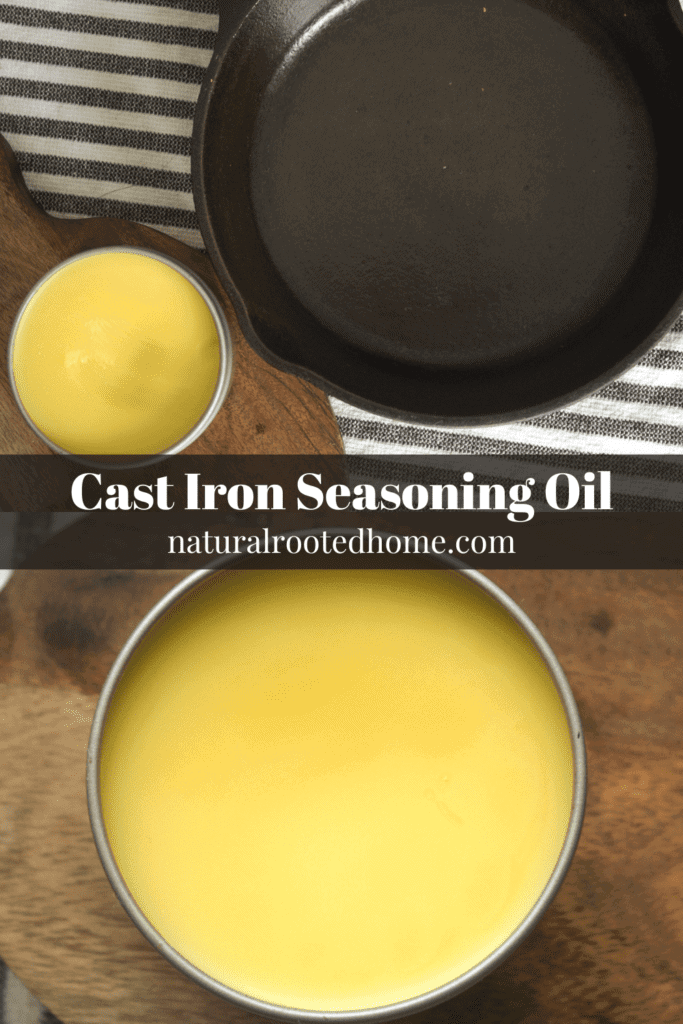
- Natural and Chemical-Free: Crafting your own seasoning oil allows you to control the ingredients, ensuring a chemical-free and natural solution for your cast iron cookware. This is especially appealing for those who prefer to avoid commercial products with unknown additives.
- Customization: DIY seasoning oil recipes are highly customizable. Experiment with different ratios of beeswax, flaxseed oil, and coconut oil to find the perfect blend that suits your preferences. You can also add herbs or spices for an extra layer of flavor.
- Cost-Effective: Making your own cast iron seasoning oil can be more cost-effective in the long run. Once you have the basic ingredients on hand, you can create multiple batches, providing a consistent supply for all your cast iron maintenance needs.
- Enhanced Performance: The combination of beeswax, flaxseed oil, and coconut oil creates a powerful synergy that enhances the performance of your cast iron. The result is a seasoned surface that not only prevents rust but also improves the non-stick properties of the cookware over time.
Why You Should Avoid Using Soap on Cast Iron Cookware
In the realm of cast iron care, a cardinal rule often emphasized by enthusiasts is the avoidance of using soap when cleaning cast iron cookware. While it may seem counterintuitive to some, refraining from soap has its merits, contributing to the longevity of your cast iron’s seasoning. Here’s why you should think twice before reaching for that bottle of dish soap:
- Preserving the Patina: Cast iron develops a natural patina over time—a seasoned layer that adds to its non-stick qualities. Soap, with its degreasing properties, can strip away this valuable patina, potentially undoing the hard work you’ve put into building up layers of seasoning. By avoiding soap, you allow the patina to flourish, creating a smoother surface that enhances the performance of your cookware.
- Maintaining Flavor Infusion: Cast iron has a unique ability to absorb and retain flavors from the foods cooked in it. This flavor infusion adds character to your dishes over time, creating a personalized touch to your culinary creations. Using soap can compromise this flavor-retaining quality by removing the subtle residues that contribute to the rich taste associated with well-seasoned cast iron.
- Preventing Detergent Residue: Even a trace amount of soap residue can negatively impact the taste of your food. Cast iron is porous, and soap particles can embed themselves in the microscopic pores of the surface. This residue may not be visible, but it can alter the flavors of your dishes and compromise the integrity of the seasoning.
How to Clean Cast Iron Without Soap
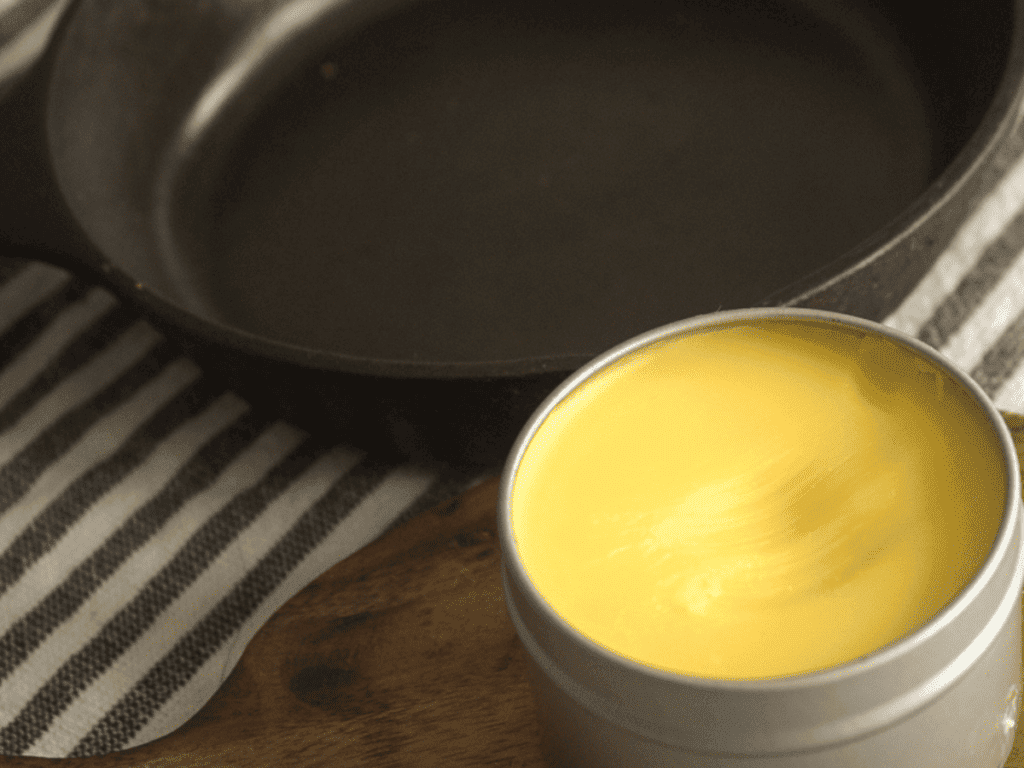
While the no-soap rule stands, maintaining cleanliness is crucial. Here’s a simple and effective method for cleaning your cast iron without resorting to soap:
- Immediate Cleaning: After cooking, allow the cast iron to cool slightly, but not completely. Cleaning while the pan is still warm makes it easier to remove food residues.
- Use a Soft Brush or Sponge: Gently scrub the surface with a soft brush or sponge. Avoid abrasive pads or steel wool, as they can scratch the seasoned layer.
- Hot Water Rinse: Rinse the cast iron under hot water, using a gentle stream to wash away any remaining debris. The heat aids in loosening stuck-on particles.
- Dry Thoroughly: Towel-dry the cast iron immediately after rinsing. Ensuring it is completely dry prevents the formation of rust.
- Reapply Oil: Once dry, apply a thin layer of your DIY cast iron seasoning oil to the entire surface. This step helps in maintaining and building up the seasoning over time.
How to Make Cast Iron Seasoning Oil
Ingredients
- ¼ cup Beeswax
- ¼ cup Flaxseed Oil
- ¼ cup Coconut Oil
Instructions
- Gather all the ingredients and ensure your cast iron cookware is clean and dry. A well-prepared surface allows the seasoning oil to adhere effectively.
- In a double boiler or a heat-resistant bowl placed over a pot of simmering water, melt the beeswax. Be patient, as beeswax has a higher melting point compared to other oils. Stir occasionally to ensure even melting.
- Once the beeswax is fully melted, add the flaxseed oil and coconut oil to the mix. Stir the ingredients together thoroughly, creating a homogeneous mixture. The combination of these oils brings a perfect balance of sealing, polymerizing, and flavor-enhancing properties.
- Allow the mixture to cool but not solidify. Once it reaches a pourable consistency, carefully pour it into a container with a tight-sealing lid. Store the DIY cast iron seasoning oil in a cool, dark place when not in use.
- When ready to season your cast iron, apply a thin, even layer of the oil mixture to the entire surface of the cookware. Ensure that the oil reaches all nooks and crannies. Bake the cast iron in an oven at a moderate temperature (around 375°F or 190°C) for an hour. This process allows the seasoning oil to bond with the cast iron, creating a durable and non-stick finish.
The combination of beeswax, flaxseed oil, and coconut oil brings a trifecta of benefits, ensuring a well-protected and superbly seasoned cast iron surface. By following this guide, you not only contribute to the longevity of your cookware but also add a personal touch to your culinary endeavors. So, roll up your sleeves, gather your ingredients, and embark on the journey of crafting the perfect DIY cast iron seasoning oil for a lifetime of delicious meals.
Want more DIY recipes? Check these out!
Hi, I’m Ashley — mama, maker, and lover of all things from-scratch. Around here, you’ll usually find me barefoot in the kitchen, covered in flour or beeswax, with kids underfoot and something simmering on the stove. I believe in slow living, simple joys, and the kind of home that smells like cinnamon rolls and sunshine. Find out more about me here.


